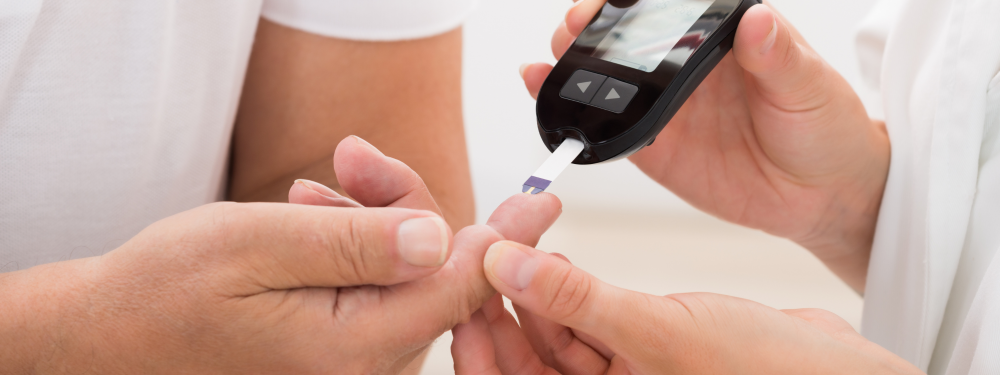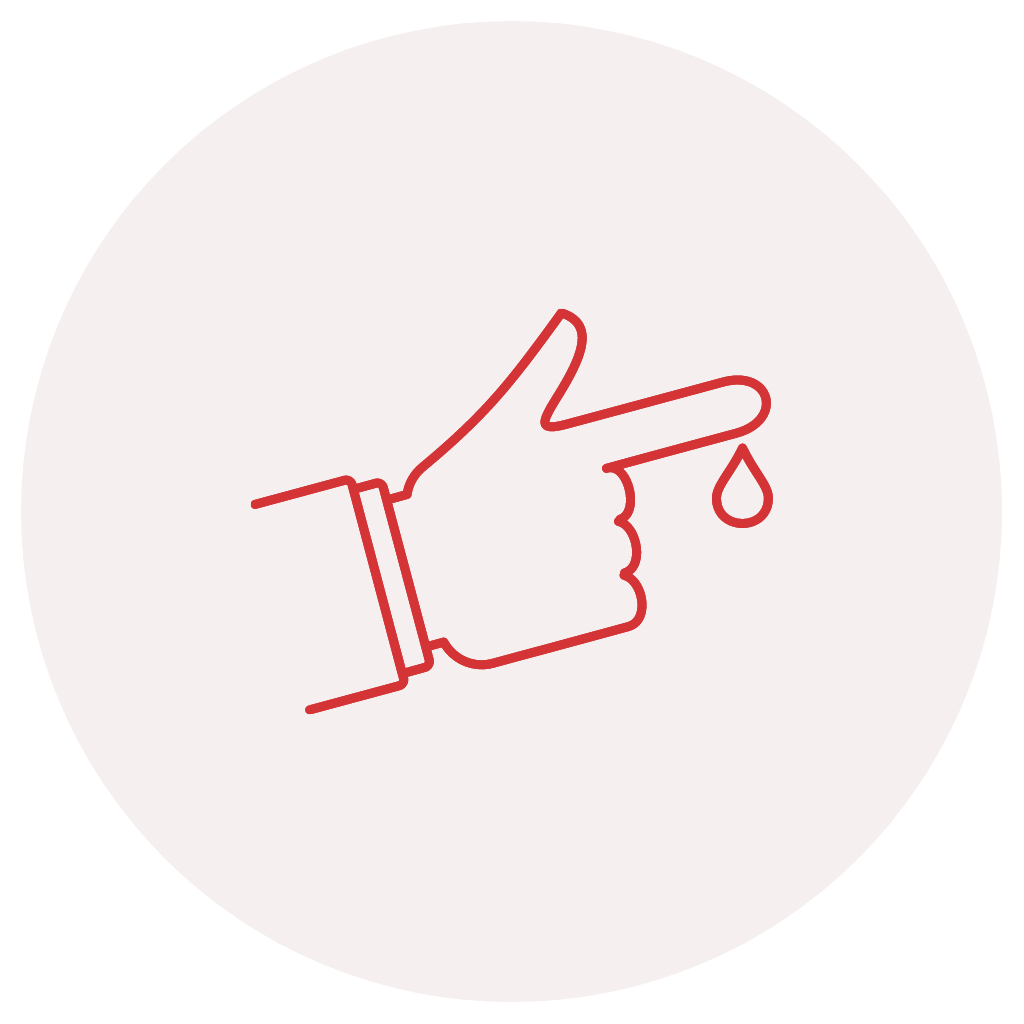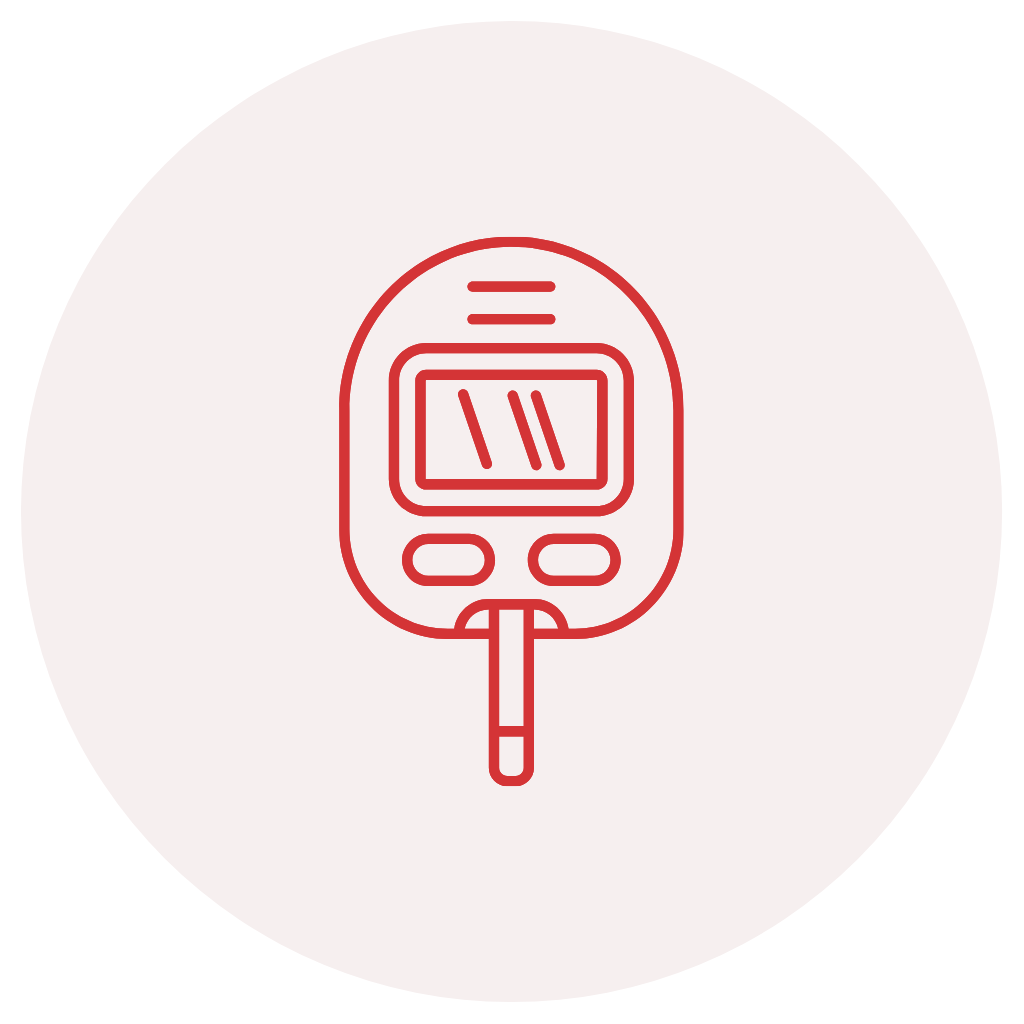
Pharmacy services
Blood cholesterol monitoring
At our pharmacies we offer a screening service to test your blood cholesterol levels as this may influence your cardiovascular risk. It’s completely confidential and only takes a few minutes.
How it works
The Process

The pharmacist will begin the service by asking you a few questions on your medical history, and will then take a blood sample using a finger prick device

A medical device will calculate your total cholesterol and triglyceride levels in your blood, based upon the blood sample that was taken

Your results will be documented, and your pharmacist will offer lifestyle advice or refer you back to your doctor according to your results
About cardiovascular risk
Cardiovascular diseases (CVDs) are a group of conditions affecting the heart and blood vessels, such as heart attacks, stroke and thrombosis. The build-up of fatty deposits on the inner walls of blood vessels are the causative factor of most acute cardiovascular events. This is since they clog arteries therefore restricting the flow of blood to the heart or brain. Other factors such age, gender, physical inactivity, whether you smoke or drink and the presence of other conditions such as diabetes, obesity and hypertension also contribute towards your risk of a cardiovascular event.
Incidence
In 2016, an analysis by the World Health Organisation showed that 2 in every 5 deaths in Malta are attributed to cardiovascular disease. Cardiovascular disease thus remains the leading cause of death, in both men and women, on the Maltese islands.
What is dyslipidaemia?
A major risk factor for the development of both cardiovascular disease is dyslipidaemia, a term coined to an abnormal amount of lipids in your blood. Blood lipids are fatty substances, such as cholesterol and triglycerides, which are essential for the normal functioning of the body:
- Triglycerides store unused calories and are a source of energy for the body
- Cholesterol is a component used to build cells and certain hormones
However, excess amounts of these substances can result in the fat deposits in your artery walls, making it difficult for blood to flow, which in turn can have a negative impact on your cardiovascular functioning. Sometimes, those deposits can break suddenly and form a clot that causes a heart attack or stroke.
Testing your cholesterol levels
A specific blood test, a lipid profile, is used to check your cholesterol levels. Your total cholesterol (TC) level is made up of 3 components: LDL cholesterol, HDL cholesterol and 20% of triglycerides (TGs).
- High density lipoproteins (HDL) are the “good” cholesterol because they help remove the “bad” cholesterol from the bloodstream and therefore reduce the risk of heart disease
- Low density lipoproteins (LDL) are the bad” cholesterol because they can build up in the walls of your blood vessels, and therefore, increase the risk of heart disease and stroke
- Triglycerides (TGs) are similar to LDL cholesterol as they are also a “bad” lipid owing to the fact that elevated levels can make the blood thick and sticky
The findings of this test are used to diagnose whether you have dyslipidaemia or not. There are different types of dyslipidaemia which exist:
- High levels of LDL (bad cholesterol)
- Low levels of HDL (good cholesterol)
- High levels of TGs
- High cholesterol, which refers to high LDL and TG levels
Based on the type and severity of dyslipidaemia that you have, your medical professional may recommend lifestyle changes such as a change in diet, the inclusion of more aerobic activities such as walking or cycling to improve your cardiovascular functioning and/or medication to normalise your blood lipid levels.
know the
Risks
Factors that cause dyslipidemia are categorised into
- Primary: Genetic (hereditary) causes
- Secondary: Lifestyle and other causes
Primary causes involve gene mutations that cause the body to either produce too much LDL cholesterol or TGs, or their insufficient removal by other proteins. These are hereditary and are thus non-modifiable, therefore unfortunately, no measures can be taken to reduce your risk. On the other hand, secondary causes of dyslipidaemia include lifestyle behaviours. These are modifiable, meaning that certain measures can be implemented to reduce your risk.
There are many secondary causes of dyslipidaemia, the most important being a sedentary lifestyle with excessive dietary intake of total calories, saturated and trans fats. Others may include:
- Cigarette smoking
- Chronic kidney disease
- Consuming large amounts of alcohol
- Diabetes Miletus (did you know, we also offer blood glucose monitoring within our pharmacies?)
- Hypothyroidism
- Obesity
know the
Signs & Symptoms
Most people with dyslipidaemia are unaware that they have it since the disease often does not present any symptoms until the condition is severe.
How to prepare
Before your consultation
For the most accurate results, fast for 9 to 12 hours before the test (you can only drink water within this time!)
What is the test
Your blood cholesterol
As explained above, a blood test (the lipid profile), is used as the gold standard to diagnose dyslipidaemia. However, throughout the year, one of our pharmacists may also check your total cholesterol (TC) and triglyceride (TG) levels via a finger prick test. Although blood cholesterol monitoring within the pharmacy is not a substitution for the laboratory method for diagnosis, it is a useful tool for monitoring cholesterol levels for patients who already have dyslipidaemia, or those who are at risk, such as obese or diabetic patients.
The service will take place by a trained pharmacist who will take a small sample of blood via a finger prick. Depending on your result, we may ask you to come back for further assessment and may offer you lifestyle advice and ways of reducing your risk of developing dyslipidaemia. Alternatively, your pharmacist may also refer you back to your doctor for further medical investigation.
Do you want to monitor your blood cholesterol at one of our pharmacies?
No appointment needed! Simply visit one of our outlets and pay in-store.
Find a pharmacy
FAQS
Frequently Asked
Questions
How long will the service take?
The test for blood cholesterol monitoring will only take 5 minutes, but your pharmacist will take as long as necessary to answer any questions that you may have.
Do I have to pay for the service?
Yes. A payment of €7 for the service will be taken in the pharmacy at the time of your test.
Do I have to make an appointment?
No, you don’t. Your pharmacist may ask you to come at a certain time when the pharmacy is less busy to provide you the best service possible, or alternatively, you may want to request a particular time for peace of mind.
